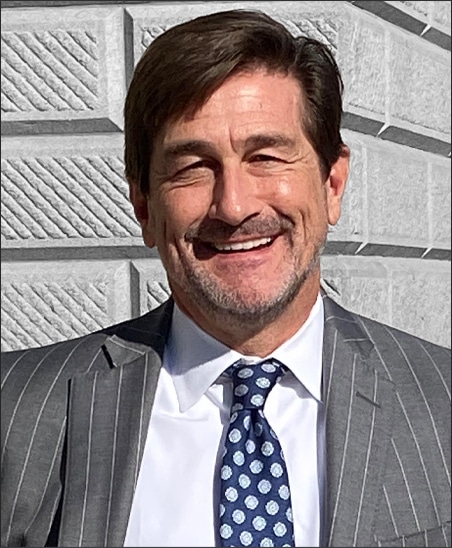Do I Have to Take a Plea Deal?
 A plea deal, also called a plea agreement or a plea bargain, is an agreement between an accused person (defendant) and the state about criminal charges. If you are accused of a crime, at some point the Solicitor’s Office may hand you a plea deal. Do you have to take it?
A plea deal, also called a plea agreement or a plea bargain, is an agreement between an accused person (defendant) and the state about criminal charges. If you are accused of a crime, at some point the Solicitor’s Office may hand you a plea deal. Do you have to take it?
Short answer: no. You are under no obligation to ever take a plea deal.
If you are offered a plea deal, consult with an experienced criminal defense lawyer in Charleston and Columbia immediately, before you decide to accept or reject it. The right decision for you will depend heavily on your specific circumstances. At The Law Offices of A. Randloph Hough, we can help you understand the offered deal, possible trial alternatives, and may also negotiate more favorable deal terms for you.
What pleas are available in South Carolina?
While the criminal rules do not require defendants to take a plea deal, they do require defendants to enter a plea. available pleas are:
- Not guilty;
- Guilty; and
- Nolo contendere (no contest).
“Not Guilty” means the accused denies the criminal accusation. “Guilty” means the accused agrees they committed the crime. “Nolo contendere” (Latin for “no contest”) neither admits nor denies the crime but does agree to accept punishment for it. (See
In South Carolina state court criminal proceedings, defendants must enter one of the above pleas by the Second Appearance. A plea of not guilty at the Second Appearance will preserve your ability to have a jury decide whether you are guilty. If you are at the Second Appearance stage of criminal proceedings and have not yet contacted a Charleston criminal defense lawyer, do so at once.
There is one more type of plea, an “ ,” that allows a defendant to maintain innocence while agreeing to punishment for the charged crime. However, this plea is only available — if the court accepts it — via a plea deal.
What is the difference between a plea and a plea deal?
The biggest difference is that word “deal.” A defendant who pleads guilty without a deal is tacitly agreeing to the full punishment possibilities that come with the charged crime. The judge will then sentence the defendant for the crime. And the judge will be able to impose a sentence without limitation except for those imposed by law.
A plea deal does require a plea. The accused will have to agree to punishment for the crime; that is part of the deal. This agreement usually happens through a guilty plea, but nolo contendere and Alford pleas are also possible in some circumstances.
But in exchange for the defendant’s agreement to take the punishment, the state will agree to for the defendant. This limit could be in the form of a reduced charge (lesser included offense), reduced number of charges, lighter sentence, or some combination of them.
A plea deal is not right for everyone. Only you can decide if one is right for you. Attorney Hough is a criminal defense lawyer working in Charleston and Columbia, South Carolina. He can help you understand your options.
At what stage in the process would a plea deal happen?
The Solicitor’s Office may offer a deal at any point before sentencing. Defense attorneys can work to negotiate a deal through that period. Most deals happen much earlier in the proceedings, though. Sometimes defendants work out plea deals by the Initial Appearance, though sometimes it makes more sense to do some investigation and see the evidence the state plans to bring before deciding to accept a deal. Attorney Hough has years with the South Carolina criminal system, and a background as a prosecutor. He can help you decide what approach would be right for you, and when to take your case before a jury.
Who offers the deal?
Because the State makes the criminal accusation, the State offers the deal. If the charge is a South Carolina state criminal accusation, the State is some element of the South Carolina state government. If the charge is a the offer comes from the federal government. In both cases, attorneys who work for the government offer the deal.
But in both federal and South Carolina state courts, accused defendants may be able to negotiate the terms of the deal before and after prosecutors offer it. Our criminal defense lawyer in Charleston and Columbia can help you with this process.
Is taking a plea deal the same thing as a speedy trial?
Under the well as everyone accused of a crime has a right to a speedy trial; that is, a public trial conducted without unnecessary or unreasonable delay. This does not mean trial always occurs immediately; it means that “The delay was not caused by any willful neglect on the [S]tate’s part” ( This right can be waived.
Unfortunately, South Carolina criminal courts are working through a This backlog may cause long delays that, while unfair, may not constitute a violation of a defendant’s right to a speedy trial. If you are concerned about how long your case is taking, contact an attorney who knows how South Carolina courts in Charleston and Columbia operate. Attorney Hough is an experienced attorney who can help you determine whether your speedy trial right has been violated.
While a plea deal will resolve the criminal case relatively quickly, a plea deal is not the same thing as a speedy trial. Remember, an arrest is not a conviction. In a plea deal, the defendant agrees to a criminal conviction — agrees that a criminal charge applies — and agrees to be subject to attendant sentencing possibilities. In a criminal trial, the jury determines whether the charge applies and, generally, the judge determines the sentence. When a defendant agrees to a plea deal, the defendant chooses the certainty of limited conviction and sentencing possibilities over the uncertainty of a trial result.
It is important to understand the difference between an offered plea deal and possible jury trial outcomes. The decision to take the deal or go to trial can have a on the rest of your life. And which option would be better for you really depends on your specific circumstances. Seek advice from a criminal defense lawyer in Charleston and Columbia so that you can make an informed decision.
If you or someone you love is accused of a crime, get advice from a seasoned criminal defense lawyer in Charleston and Columbia. Contact The Law Offices of A. Randloph Hough without delay. Proudly serving all of South Carolina.

Former prosecutor A. Randolph “Randy” Hough has a strong background in criminal law. Before entering private practice, he served as a prosecutor for the Fifth Judicial Circuit of South Carolina, handling numerous crimes ranging from drug trafficking to white-collar crimes to murder. A strong trial lawyer, A. Randolph Hough excels at building rapport with juries, and has extensive training and experience in DUI defense. Over the course of his career, he has handled thousands of cases — including both drug- and alcohol-related charges. Learn more about A. Randolph Hough.
